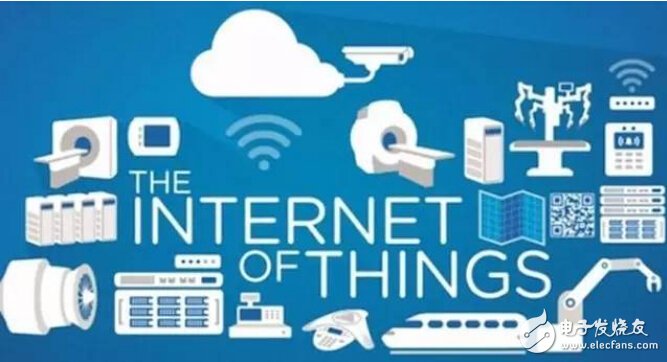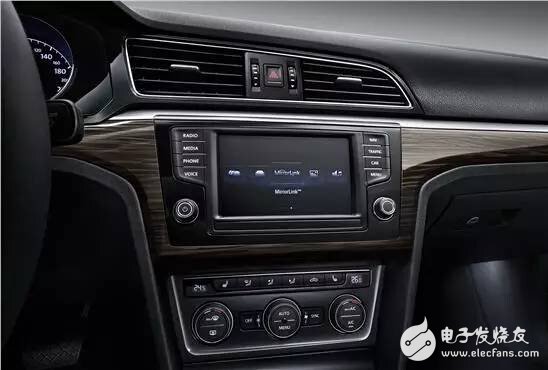
In the course of the development of human society and economy, the biggest indicator of progress is the improvement of production efficiency. Increasing production efficiency is particularly important in this era. First, because the current environmental problems have become increasingly prominent, and even to the point of threatening the survival and development of human beings, it is increasingly undesirable to use the original rough consumption of environmental resources in exchange for economic resources. Second, with the advancement of mankind, human beings also want to be freed from their daily work tasks, and they need enough time to complete what they want to do.
If the Internet of Things reform is understood from the technical level, it is to use sensors, communication networks, cloud computing, algorithm programming, software applications and other technologies to change the shape of the economy from the inside out. If you think deeply, the Internet of Things is the human economy. The efficiency of the activity is upgraded once, so that it can meet the above two deep needs of human beings. The Internet of Things can improve efficiency from the following two points.
1. Digital mapping and augmented reality

The application of IoT technology has greatly improved production efficiency, and digital mapping and augmented reality are representative of IoT technology. Digital mapping and augmented reality enable operators to accurately and in real-time grasp the condition of the machine, allowing operators to pre-fine accurate instructions based on this data, helping companies to better design, manufacture, operate and maintain products, thus greatly Save resources and improve efficiency. For example, installing sensors in different locations of the car, collecting vehicle operating parameters, including engine temperature, fuel consumption, etc., can be combined to provide real-time monitoring of the vehicle based on this information, sometimes even if the company cannot determine the source of the fault. It can also be repaired according to the long-term accumulated operating rules.
Not long ago, GE and PTC jointly announced a "smart factory" manufacturing solution that leverages digital mapping, which combines engineering and manufacturing design to give GE's factories a clear understanding of the data. Making a major decision based on this not only extends the uptime of the machine, but also predicts maintenance needs in advance.
2. Reinvent the internal management of the company and improve management efficiency

To get the product to the end of the user, the company needs to conduct a series of business activities, most of which run in a standardized set of functions. These departments include: research and development, IT, manufacturing, logistics, marketing, after-sales service, human resources, procurement and more. It can be seen that this long value chain not only reduces the efficiency of management, but also invisibly increases the business value of the product, which will ultimately allow consumers to pay. Therefore, improving the management efficiency in the product value chain is also a must for enterprises in the Internet of Things era.
The new capabilities of the smart connected products born in the Internet of Things era will force the company's traditional departmental architecture to transform. This transformation takes product development as a starting point and radiates to the entire value chain. With the popularity of smart connected products, traditional functional boundaries are changing, and new functional departments will continue to emerge.
For example, product development, smart connected products require companies to completely rethink product design. First of all, at the most basic level, product development should be transformed from mechanical design to system engineering that truly exaggerates disciplines. Smart Connected products have complex systems that include not only mechanical components, but also software systems or cloud applications. Such different functional departments can carry out product research and development through the cloud, which greatly improves the management efficiency between different functional departments.
The significance of improving efficiency to economic activities
The impact of the Internet of Things on the economic industry is not a reduction of the industry as a whole, but an expansion of the industry. The sensor that is needed under the "Internet of Everything" will be a huge number, which will greatly improve the development of the sensor industry; for example, the traces of the use of home appliances will also generate important value, etc. It is an extension of the economic industry.
Improving production efficiency and economic industrial value is of great significance to China. In recent years, with the disappearance of the “demographic dividendâ€, China’s labor costs have been greatly improved. Therefore, many manufacturers have implemented the “machine substitution†method. Although the one-time investment is large, in the long run, more will be achieved. Economic benefits. Perhaps someone will have questions about where humans will go after the machine is replaced. I even think that a large number of people will be unemployed. The author thinks that the substitution of machines and other ways to improve production efficiency will lead to the unemployment of a large number of people is a false proposition.
First, the disappearance of a value system will be replaced by another value system.
From the perspective of several industrial revolutions of mankind, every industrial revolution is a subversive destruction of the original mode of production, but it has created new industrial opportunities. For example, before the use of steam engines, the main economic activities of human beings were hand workshops or agricultural labor. After the use of steam engines, a large number of farmers became workers. With the further development of society, a large number of engineers and service personnel appeared. Robots are essentially the automation of manufacturing systems, aiming at high quality of life and productivity. Twenty years ago, a 200,000-kilowatt generator might require 1,000 people, and now only 2 million people need 2 million kilowatts, but there has been no problem of large-scale workers being laid off in the power industry. At the same time, the creation of new jobs must also be based on the disappearance of old posts.
Second, efficient production methods also have a positive effect on the overall job market.
Whenever there is a major breakthrough in technology, the discussion on the impact of the job market will be rampant. However, the Internet of Things era will not diminish our needs or reduce the number of people employed. New industries, new services, and new careers will continue to emerge, allowing more people to realize their dreams. For example, technicians equipped with augmented reality devices and smart phones can perform complex repairs even without receiving a lot of training. It is also difficult for experts to guide and train work with low skill levels. Imagine how the landscape architects will change when the home and garden are equipped with sensors that provide information on soil, irrigation, vegetation status, and problem areas.
Finally, efficient production methods are the basic way of human progress.
Free yourself from the need to survive, so that you have more energy to engage in your own activities of interest, which is the most powerful driving force for human progress. Inefficient production methods greatly limit the development of individuals. Take hand workshops as an example. This inefficient production method requires more workers to work longer to complete certain production targets. After using the steam engine, the same production index requires only a small amount of manpower, and the increase in production efficiency allows people to have a certain degree of discretion, which gradually evolves into a weekly "five days and eight hours" work system. . As the efficiency of economic production in the Internet of Things era is further enhanced, personal work will evolve toward lighter and fragmented, and people's working hours will change from 40 hours per week to 20 hours or less. So that humans will have more time to engage in a personalized career.
Constant Voltage Power Supply ,Linear Power Adapter,5V Power Adapter,5V 1A Power Adapter
Ninghai Yingjiao Electrical Co., Ltd. , https://www.yingjiaoadapters.com